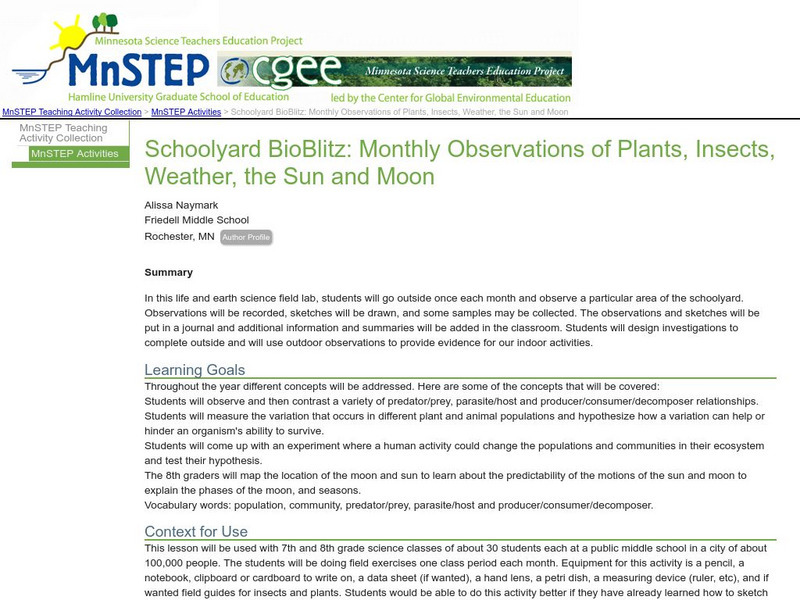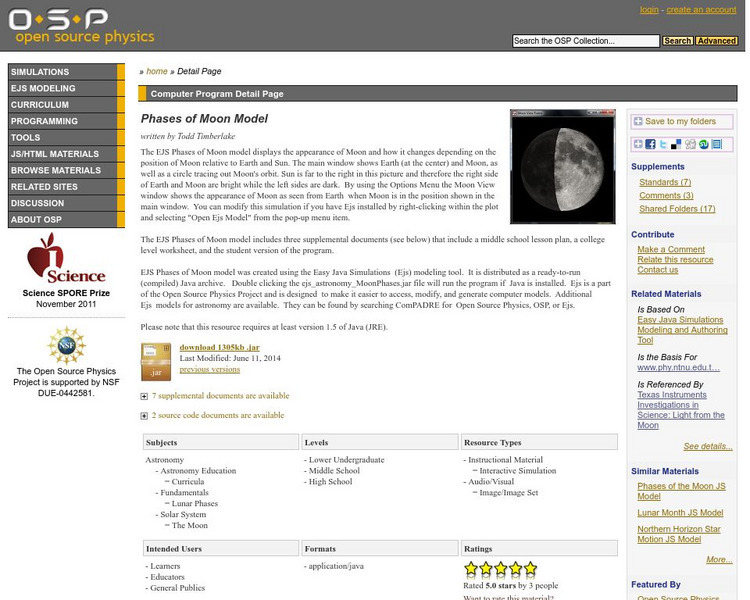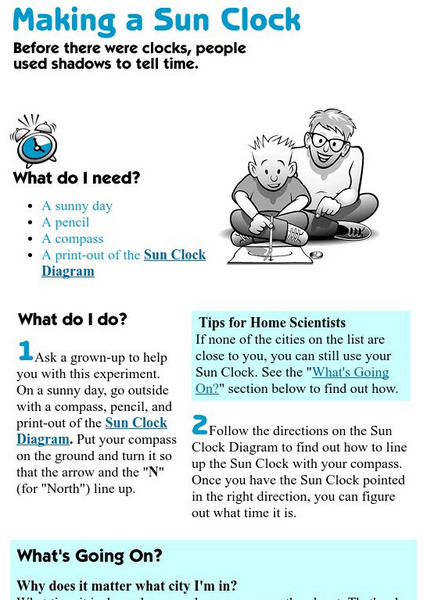Hi, what do you want to do?
Curated OER
Electricity and Circuits
For this electricity and circuits worksheet, students read a 2 page article, answer 5 questions with multiple choice answers and read 10 statements and determine if they are true or false.
Curated OER
Ocean Currents Quiz
In this ocean instructional activity, students complete a 13 question multiple choice on-line interactive quiz about ocean currents. Prior knowledge is assumed.
Curated OER
Health and growth
Students examine ways for people to stay healthy, such as exercising and eating right.
Curated OER
Interdependence and Adaptation
Fifth graders construct a food web to illustrate how animals and plants are interdependent. In this interdependence lesson, 5th graders identify how consumers, producers, herbivores, carnivores and predators are related in a habitat....
Curated OER
Current Interactions
High schoolers design an experiment to see how wind, temperature, and salinity work together to influence ocean currents and present it in a report format. They explain to their classmates how experiment findings relate to ocean currents.
Curated OER
Weather Predictions
Fourth graders explore meteorologists. They explore symbols on a weather map and make five day forecasts.
Curated OER
Weather Records
Students write newspaper articles using a "weather record" worksheet and information they find in newspapers.
Curated OER
Keeping Warm
Learners participate in an online activity to determine how objects heat and cool. They determine what objects best serve as thermal insulators.
Curated OER
Habitats
Students participate in an online lesson to determine that different plants and animals are found in different habitats. They use food chains to show feeding relationships in a habitat, and see that nearly all food chains start with a...
Curated OER
Light and Shadows
Learners participate in an online lesson to determine how light travels from a source, and to explain that shadows form when light travelling from a source is blocked.
Curated OER
Gases Around Us
Students participate in an online lesson showing that gases are formed when liquids evaporate and that when a gas is cooled, it condenses to form a liquid, and gases move and flow more easily than liquids, and how gases differ from solids.
Curated OER
Micro-organisms
Students examine how micro-organisms are living organisms that are often too small to be seen. They explain that micro-organisms may be beneficial or harmful.
Science Buddies
Science Buddies: Build Your Own Helio Tracker That Turns With the Sun
In this science fair project, design and build a mechanical sunflower device that faces the Sun as the sun moves through the sky. By harnessing solar energy, your sun tracker should follow the movement of the sun.
Nine Planets
The Nine Planets: The Sun Facts
Statistical data, general features, key terms, characteristics, and influences of the sun.
PBS
Pbs Learning Media: Sky Patterns: Sun, Moon, and Stars
Observe the regular, predictable patterns of the Sun, Moon, and stars in the sky in this media gallery from WGBH. Interact with the animated storybook to observe and predict patterns of the Sun, Moon, and stars over a day and analyze...
Yale University
Yale New Haven Teachers Institute: A Raisin in the Sun
This site features discussion questions to go along with each scene of the play "A Raisin in the Sun," by Lorraine Hansberry. Students will gain a broader perspective of Hansberry's work when they visit this site.
TED Talks
Ted: Ted Ed: The Sun's Surprising Movement Across the Sky
Suppose you placed a camera at a fixed position, took a picture of the sky at the same time every day for an entire year, and overlaid all of the photos on top of each other. What would the sun look like in that combined image? A...
Utah Education Network
Uen: The Night Sky
Learn about the rotation of the earth, the movement of the moon, and the position of the sun.
University of Chicago
University of Chicago: What's Your Slant? Sun and Shadows
This fun activity helps you to understand the movement of the sun by studying shadows.
CK-12 Foundation
Ck 12: First Grade Science: Sky Patterns
[Free Registration/Login may be required to access all resource tools.] Describes patterns that can be found in the movement of the Sun, Moon, and stars.
Science Education Resource Center at Carleton College
Serc: Mn Step: Schoolyard Bio Blitz
For this activity, middle schoolers visit a small section of the schoolyard and record observations in a scientific journal. They will observe different things as the school year progresses, including ecological relationships, human...
American Association of Physics Teachers
Com Padre Digital Library: Open Source Physics: Phases of the Moon Model
Examine the changes that occur with the moon's movement in relationship to the Earth and Sun with this astronomy simulation.
PBS
Pbs Learning Media: Galileo: Sun Centered System
In the early 1600s, most people believed that the Sun revolved around a stationary Earth. This video segment adapted from NOVA tells how Galileo proved that the Sun, not Earth, is at the center of our universe.
Exploratorium
Exploratorium: Making a Sun Clock
Learn how to use the sun to tell time. This simple activity reinforces the concepts of light and shadow, night and day, time, and geographical north vs. magnetic north.
























